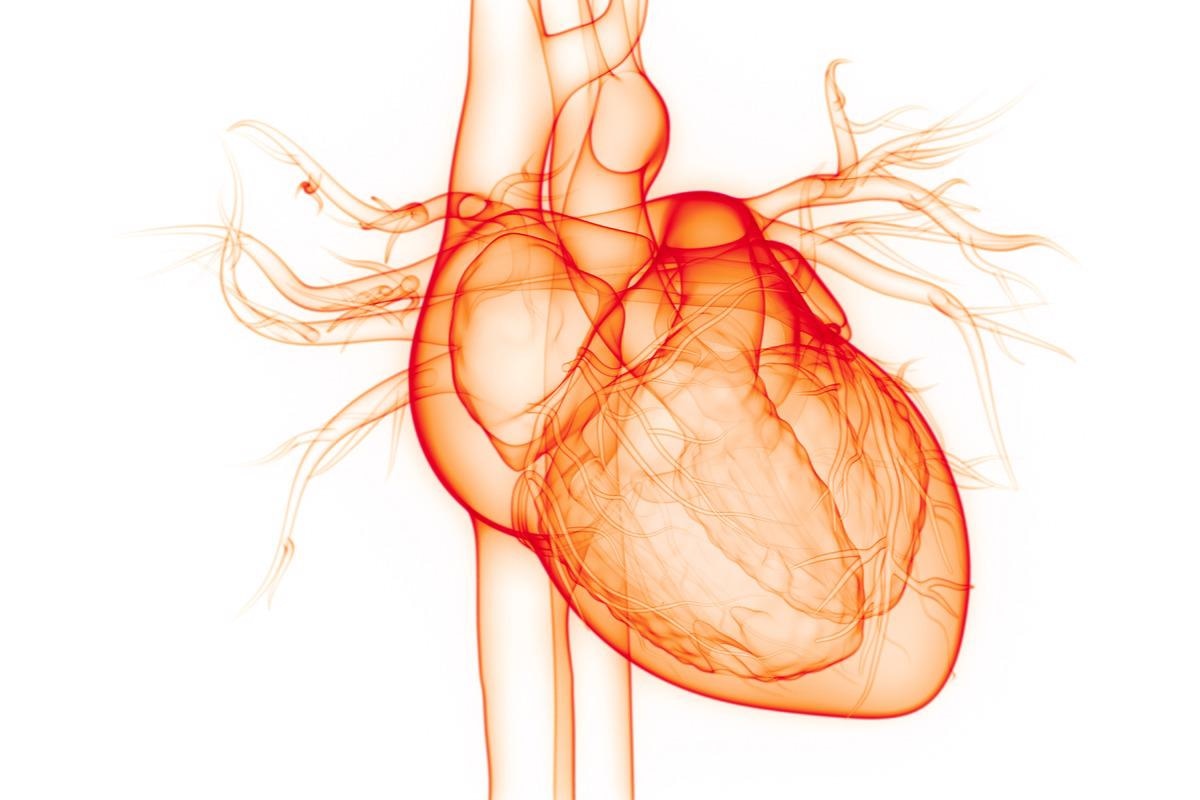This patient showed atrial fibrillation eight days after receiving the second dose of coronavirus disease 2019 (COVID-19) mRNA-1273 (Moderna) vaccine.
 Study: Atrial fibrillation as a precursor of mRNA-1273 SARS-CoV-2 vaccine-induced pericarditis. Image Credit: Magic mine/Shutterstock
Study: Atrial fibrillation as a precursor of mRNA-1273 SARS-CoV-2 vaccine-induced pericarditis. Image Credit: Magic mine/Shutterstock
Acute pericarditis, an inflammation of the pericardium, is a recognized complication observed in patients after taking mRNA-based COVID-19 vaccination. Subsequently, the implementation of mass vaccination programs globally has led to a sudden spike in the cases of pericarditis; however, new-onset atrial fibrillation is extremely rare after severe acute respiratory syndrome coronavirus 2 (SARS-CoV-2)-induced pericarditis.
In two European hospitals, 822 patients developed pericarditis over eight years, of which only 34 (4.3%) developed atrial fibrillation within 24 hours of their diagnosis. None of these patients had atrial fibrillation before they were diagnosed with pericarditis.
Pericarditis patients who developed atrial fibrillation were significantly older than those who did not, while almost all of them converted spontaneously to sinus rhythm within 24 hours. So far, only one 30-year-old male patient with Marfan’s syndrome has been reported to have developed atrial fibrillation a week after receiving his Moderna vaccine. However, his overall medical condition was much different from the patient described in this study.
Clinical presentation of the patient
The researchers of the present study described the case of a healthy 49-year-old male patient with 30 minutes of palpitations who was seeking an emergency admission. Notably, before eight days, he had received the second dose of his Moderna vaccination.
The patient’s vitals were normal, with a white blood cell count of 14.5 × 103 cc/L. He showed a heart rate of 110–125 beats per minute and normal blood pressure and respiratory rate. Although he had mild chest discomfort with shortness of breath and irregular pulse, he did not have a fever. His electrocardiogram (ECG) confirmed atrial fibrillation without any segment elevations or depressions. Therefore, after his informed consent, he was electrically converted to normal sinus rhythm, and post this procedure, his ECG showed no segment deviations or abnormal intervals.
He was prescribed rivaroxaban and discharged from the hospital, and given an outpatient cardiology appointment after three weeks.
Discussion
As cases of pericarditis post-COVID-19 mRNA vaccination are small, the pathophysiology of this condition is relatively unknown. This illness, however, is typically reported within one to two weeks after COVID-19 vaccination in patients with an average age of 50.
Clinicians have proposed some mechanisms, including hypersensitivity to vaccine constituents, an excessive inflammatory reaction, or an inappropriate immune response for its diagnosis. The diagnosis of such patients could be based on the following Canadian clinical practice guidelines - the onset of symptoms within a week of mRNA vaccination, dyspnea, chest pain, or syncope, in addition to ECG showing pericarditis or pericardial effusion and elevated cardiac and inflammatory biomarkers. For severe cases, cardiac magnetic resonance imaging or endocardial biopsy was recommended.
It is worth noting here that the majority of patients diagnosed with atrial fibrillation are discharged from the hospital on the same day safely, and even when admitted, they are kept under observation for usually one day.
The diagnostic procedures include a physical examination and sometimes use of biomarkers, and non-invasive imaging. Patient history, however, is taken into consideration before finally concluding the diagnoses, which is ascertained via biopsy and histologic assessments.
Conclusions
Although rare, post-COVID-19 mRNA vaccination atrial fibrillation has been reported in patients with pericarditis. The study does not endorse that all patients with new or deteriorating atrial fibrillation need extensive medical investigation. Further, the authors did not recommend any specific treatment for patients with atrial fibrillation and advised only supportive treatment.
However, they recommended physical examination techniques for a timely diagnosis of atrial fibrillation. Physicians could use auscultation for a friction rub, assess neck veins, or ascertain pulsus paradoxus. More importantly, they could use bedside ultrasound for diagnosis, which is rapid, inexpensive, and easy to perform in any environment and causes minimal patient discomfort.
Currently, it is not clear whether patients with pericarditis should opt for a non-mRNA COVID-19 vaccination; however, judiciously weighing the infection risks vs. risks of vaccination is strongly advised as COVID-19 infection and mRNA vaccines are associated with incidences of myocarditis, pericarditis, heart failure, arrhythmias, myocardial infarction, and thromboembolic events.